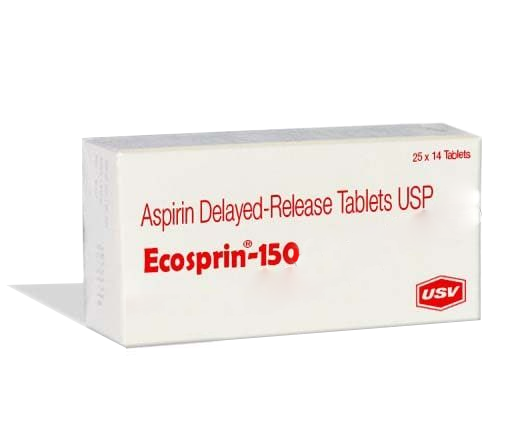Tens of millions of adults in the United States take aspirin to minimize their risk of heart attack or stroke. Yet, research conducted over the past two decades suggests that daily aspirin use may also reduce the chance of getting or dying from certain types of cancer. The U.S. Preventative Services Task Force (USPSTF) suggested that aspirin can be administered to reduce the risk of cardiovascular disease and colorectal cancer in certain individuals.
Numerous scientists who conducted some of the seminal studies on which the USPSTF based its recommendations emphasized the significance of the panel's efforts.
Aspirin Provides Greatest Benefit and Lowest Risk
Those between the ages of 50 and 59 who are at a greater risk for cardiovascular disease are singled out by the USPSTF recommendations as the population group most likely to receive a net benefit with the least amount of risk.
The suggestion also suggests that potential candidates have a life expectancy of at least 10 years and are not at elevated risk of bleeding (due to other health concerns or the use of other medications) — a recognized adverse effect of long-term aspirin use.
Does Aspirin reduce the risk of developing other cancers?
Regular aspirin use is connected with a reduced risk of various malignancies, according to the study results. As an example, in a recent Harvard study, aspirin use was not associated with a reduced risk of the other most prevalent malignancies.
For the prevention of colorectal cancer, there is also evidence from clinical trials and laboratory studies to support its usage.
Alternative applications for Aspirin
Aspirin, also known as acetylsalicylic acid, relieves pain and reduces temperature. Doctors occasionally prescribe aspirin as an anti-inflammatory or blood thinner. Aspirin is used to treat several inflammatory conditions, including Kawasaki disease, pericarditis, and rheumatic fever. Aspirin's principal ingredient, salicylate, is used to relieve fevers and pain. It is among the oldest medications still in use today.
Aspirin should be taken precisely as directed on the label or as prescribed by a physician. Do not exceed the recommended dosage or use for longer than the recommended timeframe. Always follow the instructions on the medicine package when providing aspirin to a child. If aspirin causes stomach irritation, take it with food. You should only purchase aspirin online if you will need it for a short time.
Adverse consequences
The most common Aspirin side effects are heartburn, stomach or intestinal inflammation, and nausea.
Less frequent adverse effects include: • vomiting • gastrointestinal bleeding • gastrointestinal inflammation • bruising
Caution and safety precautions
Those with the following conditions should use aspirin with caution and only if prescribed by a doctor: Bleeding issues, high blood pressure that is unmanageable, asthma, liver or kidney illness.
Those who are pregnant or nursing may use low-dose aspirin under the supervision of a physician. According to physicians, high-dose aspirin is typically not suggested during pregnancy.
Those with a known allergy to aspirin or other nonsteroidal anti-inflammatory drugs (NSAIDs), such as ibuprofen, should avoid taking these drugs.
Doctors do not recommend aspirin during a stroke since not all strokes are caused by blood clots. In some circumstances, aspirin may aggravate a stroke.
Moreover, anyone who regularly consumes alcohol or is undergoing dental or surgical treatment, no matter how minor, should visit a doctor before you purchase aspirin online.
Interactions
Aspirin can interact with numerous medications. Here are a few instances:
Examples of anti-inflammatory pain medications are diclofenac, ibuprofen, and naproxen. When used with aspirin, these drugs can increase the risk of gastrointestinal bleeding.
Citalopram, fluoxetine, paroxetine, venlafaxine, and sertraline are antidepressants that inhibit selective serotonin reuptake. When taken with aspirin, any of these can increase the risk of bleeding.
Aspirin can reduce the anticoagulant effects of warfarin, hence increasing the risk of bleeding when used with this blood thinner. There are, however, instances in which this combination is helpful.
Choose us for online Aspirin ordering
Aspirin is a nonprescription NSAID that can be purchased online. Aspirin can be bought online from reliable online pharmacies that offer inexpensive Aspirin pills. Our website also sells aspirin; you may buy aspirin online by visiting our website at any time. We guarantee that your order will be delivered on time and that your medical information will be kept confidential. If you prefer to pay at the time of delivery, you can use the COD option at the payment gateway by choosing the button labeled "Order Aspirin cash on delivery."
